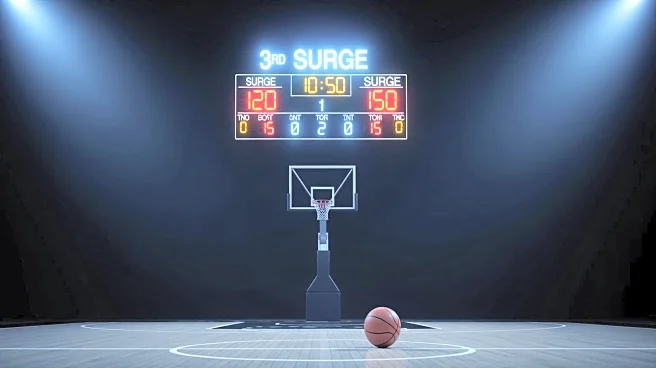What's Happening?
Nick Mangold, a former New York Jets player, has passed away at the age of 41 due to complications from kidney disease. Mangold, who spent his entire 11-year NFL career with the Jets, was a celebrated
center known for his leadership and toughness. His death has prompted an outpouring of tributes from fans, teammates, and sports figures, including Jets owner Woody Johnson and former coach Rex Ryan. Mangold was a three-time All-Pro and a seven-time Pro Bowl selection, remembered for his contributions to the Jets' offensive line and his impact on the team's success during his tenure.
Why It's Important?
Mangold's death is a significant loss for the NFL and the New York Jets, where he was a pivotal figure in the team's history. His leadership and performance were instrumental in the Jets' playoff runs, and his influence extended beyond the field, as he was known for his character and loyalty. The tributes highlight the deep respect and admiration he garnered throughout his career, underscoring the personal and professional legacy he leaves behind. His passing also brings attention to the health challenges faced by athletes, emphasizing the need for awareness and support.
What's Next?
The Jets and the NFL community are expected to continue honoring Mangold's legacy through various tributes and memorials. His induction into the Jets' Ring of Honor in 2022 will serve as a lasting testament to his contributions to the team. The impact of his passing may also prompt discussions on athlete health management, potentially influencing future policies or initiatives within sports organizations.
Beyond the Headlines
Mangold's story highlights the personal struggles athletes face, often hidden behind their public personas. His openness about his health condition and appeal for a kidney donor underscores the importance of awareness and support for those dealing with similar issues. The cultural and ethical dimensions of athlete health management may gain more attention, encouraging a broader conversation about the responsibilities of sports organizations in supporting their players.









